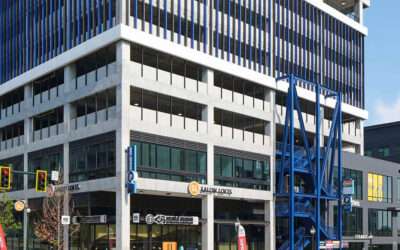If you can put politics aside, you may agree that one of the most debated topics today is the workplace. Should leadership require people to come back to the office? Does a hybrid workplace make the most sense? Or should companies be even more attuned to emerging generations that want complete flexibility?
These are all fair questions, and research already exists on every side, whether it be a full return to the workplace, a hybrid option or complete flexibility. As a Growth PR+Mkt firm, we made an early assumption that we would return to the office in full force. However, we never acted on that assumption. We quickly embraced a hybrid model – 60/40 – where staff had the option of working remotely 40 percent of the month. We placed no other stipulations on the new program and we waited to implement it until March 2022, when the ghost of Covid finally felt like it was fading into the background.
Here we are heading into Q4 2022, once again taking a step back to think about what is in the best interest of the firm, our staff and our clients. Is 60/40 the right balance? Should we give a bit more flexibility and flip it to 40/60?
Before we answer that, we think there’s more to consider. If you look at the research, it presents a number of advantages to remote work – better work-life balance, higher productivity, increased flexibility, reduced absenteeism and turnover. Those are all compelling data points. There’s a yang to that yin though. Distractions at home. Isolation. Loss of work/life separation.
So how does a company balance the yin and the yang? First, we think you need to ask yourself, have you created the kind of culture that can navigate any of these scenarios? Have you given your team enough structure and resources to thrive in any environment? Have they embraced the vision and mission of the company? Are those foundational themes in synch with the go-forward plan?
Yes, there’s much to consider in this workplace shift. Here’s where we landed. At our core, we are a high-performance agency. The senior staff has embraced and shaped that sentiment among the staff they have mentored. And those mentored have paid it forward to newer hires. So, we have a single team culture without ego and with an expectation for everyone’s role. While leadership may see the importance of the “physical” space for collaboration, creativity and connection, it also values the idea of empowerment. That’s where we landed. Not a workplace, but an empower-place where staff is empowered to work from the office, the home, the beach, the mountains and beyond, without compromise to performance or expectations. It’s a small leap of faith that each of us embraces with confidence and conviction.


